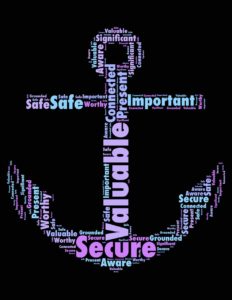It is very unnerving for an Empath or Highly Sensitive Person to be around a liar. To be lied to. To our face. Cuz we know it.
You see, your outside is not matching your inside when you lie to us. We can see beneath the mask. It is like a massive assault to our senses that is both hard to process and hard to recover from. Because the lying tells us to not believe what we feel, what we know to be true.
This is especially confusing to empath children and HSPs. Because there is a lot of dishonesty in the world. That we are supposed to ignore. Even within our families. It is very stressful when adults tell you not to trust your gut – for example, when they tell you to be nice to cruel family members. (What’s up with that? Isn’t it better for children not to even be around untrustworthy adults? Rather, stop pretending and ignoring warning signs that may actually endanger sensitive children!)
Remember the old saying, “The eyes are a window to your soul?” They are also the window to your emotions. When someone’s face and words do not match their body language and internal energy, it is very unnerving to us. Empathic and sensitive children, young adults, and adults need to learn to trust what they feel, rather than the opposite. Instead of hearing, “you are too sensitive.” We need to hear “trust your true feelings.”
Lying and liars have become quite popular these days. And I don’t get it. Yes, social media can spread lies more quickly, but fact checking is available at our finger tips. Some in the public realm believe, “If I say it, it is true.” Which of course is not true. And truth does matter. It matters a lot. And not just to empaths and sensitives.
“Friedrich Nietzsche said, “I not upset you lied to me; I’m upset from now on I can’t trust you.”
- I would update that yes, I am upset that you lied to me, and now I can’t trust you.
- I am only reminded to trust myself, to see through your mask.
- Or better yet, to stay away from you ….





 “If you are tired, learn to rest, not to quit.” – Banksy.
“If you are tired, learn to rest, not to quit.” – Banksy. Highly sensitive people have highly sensitive senses. Makes sense? Of course.
Highly sensitive people have highly sensitive senses. Makes sense? Of course. Ever find yourself speechless? Are you an empath or highly sensitive person? You are not alone in your loss for words. It happens to empaths and HSPs more often than others. We may become temporarily unable to speak when we are experiencing very strong emotions. It especially happens when we are in the presence of inauthentic people.
Ever find yourself speechless? Are you an empath or highly sensitive person? You are not alone in your loss for words. It happens to empaths and HSPs more often than others. We may become temporarily unable to speak when we are experiencing very strong emotions. It especially happens when we are in the presence of inauthentic people. “Game over, man! Game over!” I can still picture Private William Hudson (Bill Paxton) yelling this in the movie Aliens when he realizes that the ship meant to rescue him and his crew was destroyed. They are armed, but it doesn’t matter. They are trapped. Hope is lost. They will die.
“Game over, man! Game over!” I can still picture Private William Hudson (Bill Paxton) yelling this in the movie Aliens when he realizes that the ship meant to rescue him and his crew was destroyed. They are armed, but it doesn’t matter. They are trapped. Hope is lost. They will die. Strong? Yes. Dumping grounds? No.
Strong? Yes. Dumping grounds? No.